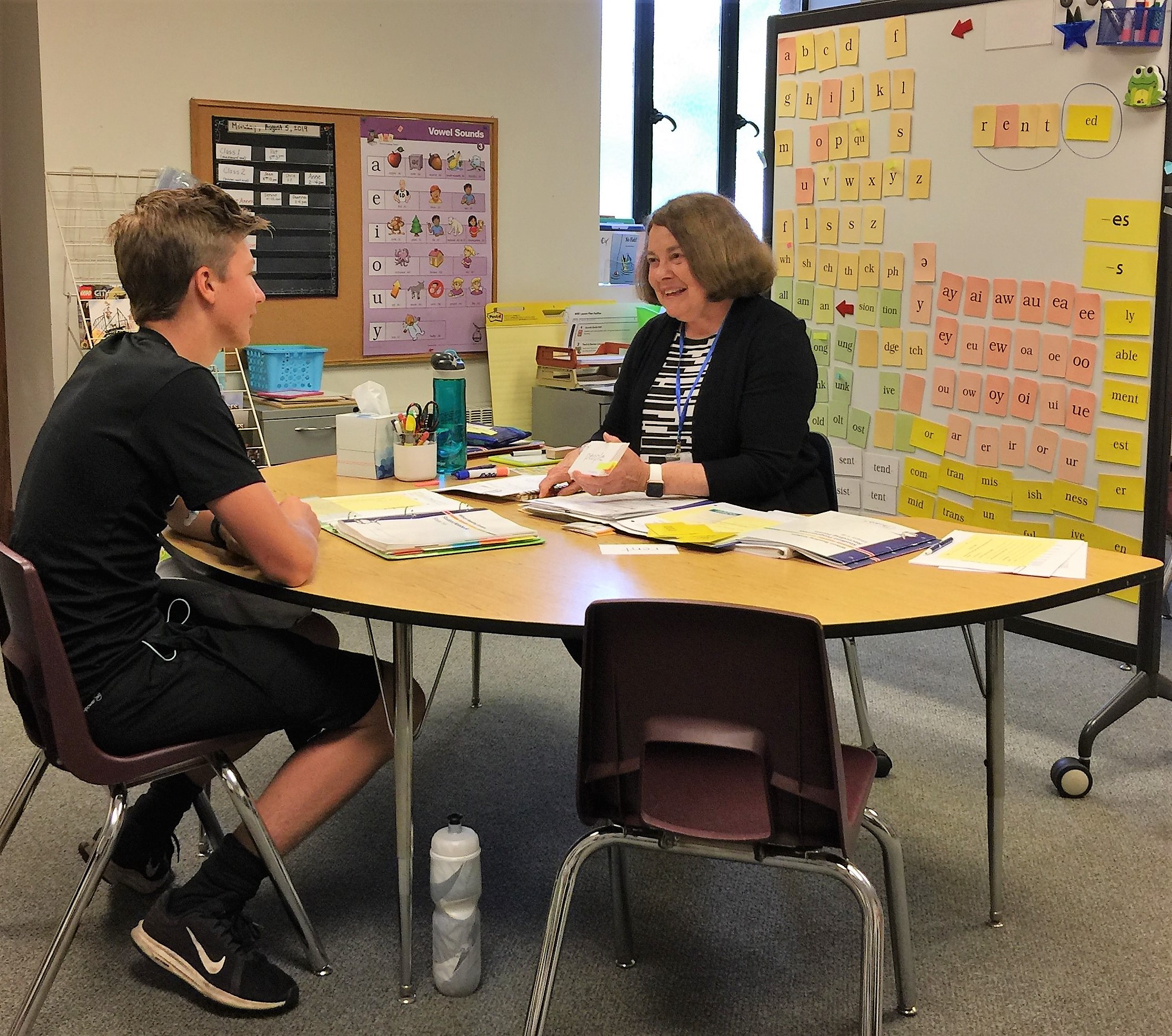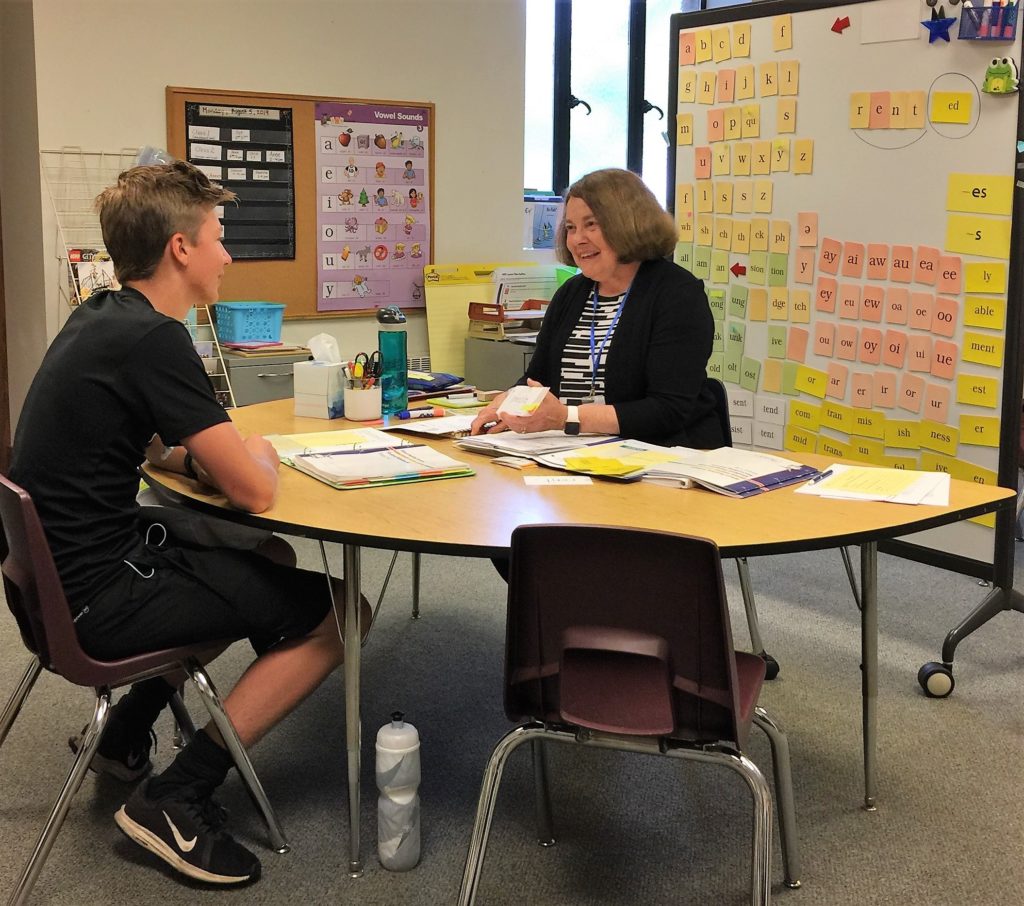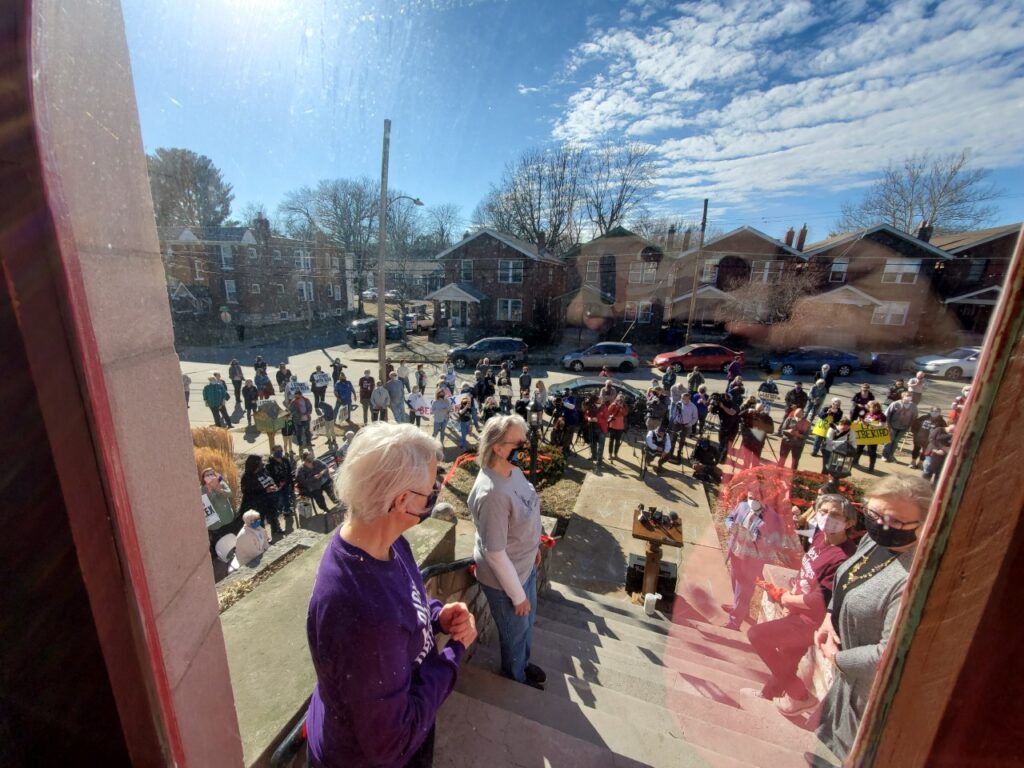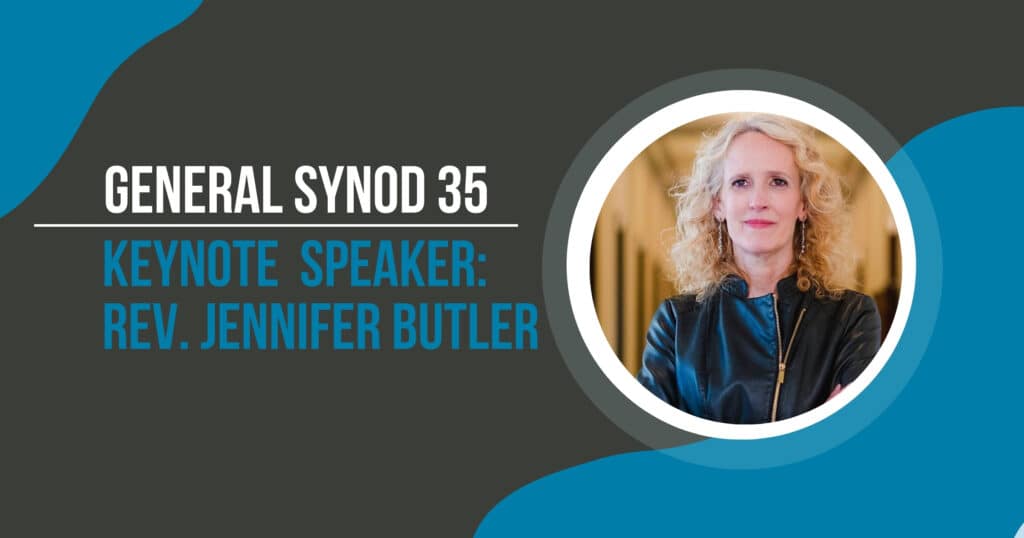Dyslexia tutoring a matter of justice for Wisconsin kids
 Dyslexia doesn’t just make it hard to read. Sometimes it makes a kid feel left out.
Dyslexia doesn’t just make it hard to read. Sometimes it makes a kid feel left out.
In Northeast Wisconsin, kids and their parents can turn to a church for dyslexia support. Thanks in part to a Neighbors in Need grant from the United Church of Christ, Union Congregational UCC in Green Bay regularly welcomes dozens of kids for one-on-one tutoring at its On the Mark Dyslexia Clinic.
One of them is Max Boudwin. As a 5th-grader, he worked around his disability as best he could. For story problems in math, he buddied up with a classmate. He avoided taking reading parts when his class led the liturgy at his Catholic school. But it didn’t always work. Card games and directional signs posed problems. If he was watching a movie with captions, he would miss all or part of the story and couldn’t join in conversations with friends afterwards. “It really kept him from getting involved in class or with his friends,” said his mother, Kelly Boudwin.
Max started at the On the Mark clinic the summer before 6th grade. His reading – and confidence – immediately improved. Now in 7th grade, “he is thriving and not afraid to raise his hand for fear of getting laughed at,” Kelly said. “His whole demeanor has changed for the better. He is happy to get up in front of the whole school, as well as the parish community, and do a reading.”
Wisconsin is one of only two U.S. states that does not require dyslexia instruction in public schools, so demand is high. “When I applied for the NIN funds, I was anticipating possibly 40 students for the 2019 summer program,” said Executive Director Patricia Shafer. Fifty-four have been coming to appointments, Monday through Thursday, 8 a.m. to 4 p.m. After a $25 registration free, the tutoring is free. Last school year, with hours from 1 to 7 p.m., the clinic was already serving 28 students regularly, grades K through 12. They travel as far as 40 miles to the downtown clinic.
For Shafer, a retired teacher and a member of Union Congregational, the clinic’s work connects with past UCC General Synod resolutions on justice for people with disabilities. “It’s really a justice issue for these kids who aren’t getting the instruction they need,” she said. “We have a boy who is now being home-schooled because he was being bullied in high school. The teachers weren’t believing he was struggling as much as he was. After he started at the clinic, his parents wrote me, ‘We have never witnessed such an improvement in our son’s reading and writing.’ We just get comments like that all the time.”
The clinic started in June 2018 with a grant of $8,000 from the congregation’s Gifts and Memorials Fund. It costs about $1,000 a month to run the clinic, Shafer said, including curriculum costs, tutor stipends ($12 per hour), insurance and phone expenses. The church charges no rent. Shafer volunteers her time, as do half of the program’s 16 summer tutors. Training can be expensive; a recent session for several new tutors was $7,500. This year’s $3,000 NIN grant helped pay for summer tutors and Wilson Reading System instructional materials.
The church contributes in other ways, too. Members ran a campaign for clinic supplies and donated gift cards for its box of “treasures” that students can earn. Beside Shafer, four Union Congregational members are tutors. Others volunteer to be present when a second adult is needed to conform with the Safe Church policies that the congregation and the clinic both follow.
Families contribute, too. Parents have become tutors and made cash donations. And a $5,000 contribution came from a local company with connections to two families that use the clinic.
Holly Jeskewitz sends both her daughters to the clinic. The younger, 6, had classic dyslexic symptoms that included not only reading frustrations but also speech difficulties and putting shoes on backwards. “The clinic has helped improve her self-confidence, which in turn has helped her with her satisfaction at school,” Jeskewitz said. The elder, now 10, went from the bottom to the top of her class in math, got up to average in reading and has increased her confidence.
“Once she was informed as to what Dyslexia is, and that oftentimes some of the most successful individuals are dyslexic, she carries this diagnosis with pride,” Jeskewitz said. “The clinic is amazing.”
Neighbors in Need (NIN) is a special mission offering of the UCC that supports ministries of justice and compassion throughout the United States. Applications are now being taken here for the next round of NIN grants. The deadline is Monday, Sept. 30. The suggested date for congregations to receive the 2019 offering is Sunday, Oct. 6.
Related News
‘Welcoming immigrants in our midst’: New resources for churches in the wake of policy changes
It has been a long practice of churches to open their doors to immigrants faced with threats...
Read MoreGeneral Synod 35 keynote speaker is a minister at the intersection of faith and civic engagement
The keynote speaker for this summer’s General Synod 35 is a faith-based activist and author...
Read MoreLove is Louder in February: UCC ministries offer new resources, invite submissions to spread love ‘out loud’
February is often thought of as a month of love, as Valentine's Day is celebrated and lovers...
Read More


